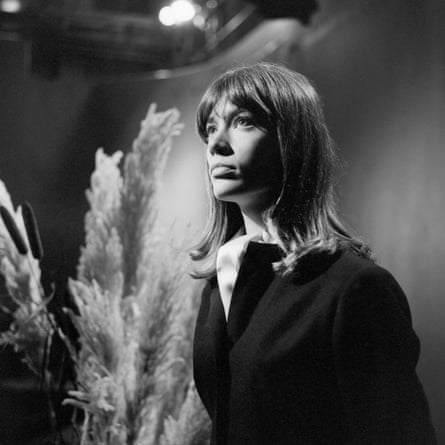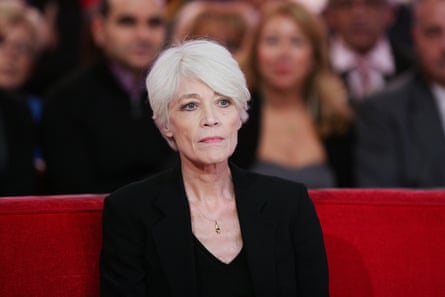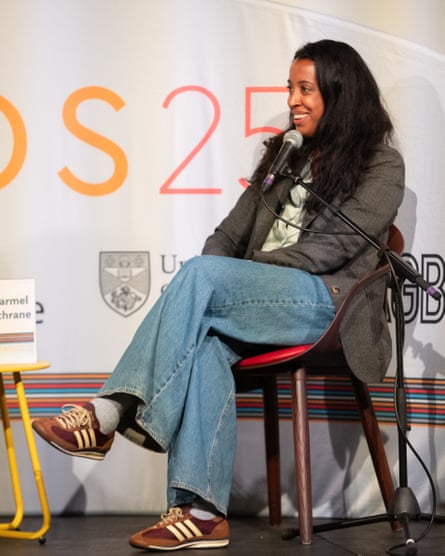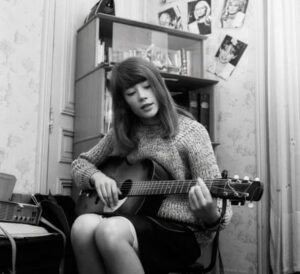Françoise Hardy, whose elegance and beautifully lilting voice made her one of France’s most successful pop stars, has died aged 80.
Her death was reported by her son, the fellow musician Thomas Dutronc, who wrote “Maman est partie,” (or in English, “mum is gone”) on Instagram alongside a baby photo of himself and Hardy.
Hardy had lymphatic cancer since 2004, and had undergone years of radiotherapy and other treatments for the illness. In 2015, she was briefly placed in an induced coma after her condition worsened, and had issues with speech, swallowing and respiration in the years since. In 2021, she had argued in favour of euthanasia, saying that France was “inhuman” for not allowing the procedure.
Hardy was born in the middle of an air raid in Nazi-occupied Paris in 1944, and raised in the city, mostly by her mother. Aged 16, she received her first guitar as a present and began writing her own songs, performing them live and auditioning for record labels. In 1961, she signed with Disques Vogue.
Inspired by the French chanson style of crooned ballads as well as the emerging edgier styles of pop and rock’n’roll, Hardy became a key part of the yé-yé style that dominated mid-century French music. It was named after the predilection for English-language bands of the time to chant “yeah”, and Hardy had a hand in its coinage: an early song, La Fille Avec Toi, began with the English words: “Oh, oh, yeah, yeah.”

The self-penned ballad Tous les garçons et les filles was her breakthrough in 1962, and sold more than 2.5m copies; it topped the French charts, as did early singles Je Suis D’Accord and Le Temps de L’Amour. In 1963, Hardy represented Monaco at the Eurovision song contest and finished fifth.
Her growing European fame meant she began rerecording her repertoire in multiple languages, including English. Her 1964 song All Over the World, translated from Dans le Monde Entier, became her only UK Top 20 hit, but her fame endured in France, Italy and Germany. In 1968, Comment te Dire Adieu, a version of It Hurts to Say Goodbye (originally made famous by Vera Lynn) with lyrics by Serge Gainsbourg, became one of her biggest hits.
Hardy’s beauty and deft aesthetic – which encompassed cleanly silhouetted tailoring alongside more casual looks, including knitwear and rock-leaning denim and leather – defined the seeming effortlessness of 20th-century French cool. She became a muse to designers including Yves Saint Laurent and Paco Rabanne, and was also a frequent subject for fashion photography, shot by the likes of Richard Avedon, David Bailey and William Klein. Later, designer Rei Kawakubo would name her label Comme des Garçons after a line in a Hardy song.
Hardy was an object of adoration to many male stars of 60s pop including the Rolling Stones and David Bowie. Bob Dylan wrote a poem about her for the liner notes of his 1964 album Another Side of Bob Dylan, beginning: “For Françoise Hardy, at the Seine’s edge, a giant shadow of Notre Dame seeks t’ grab my foot …”
She was also courted by directors, appearing in films by Jean-Luc Godard, Roger Vadim, John Frankenheimer and more.
Hardy left Disques Vogue amid financial disputes, and signed a three-year deal with Sonopresse in 1970. This creatively rich period saw her record with Brazilian musician Tuca on 1971’s highly acclaimed La Question, and continue her multi-lingual releases, but by the contract’s end her stardom had waned and it was not renewed.

She spent the mid-1970s chiefly focused on raising her son, Thomas, with her partner, musician and actor Jacques Dutronc. Releases restarted with 1977’s Star, and Hardy embraced – not always enthusiastically – the sounds of funk, disco and electronic pop. A longer hiatus in the 1980s was punctuated by 1988’s Décalages, billed as her final album, though she returned in 1996 with Le Danger, switching her palette to moody contemporary rock. She released six further albums, ending with Personne D’Autre in 2018.
Having first met in 1967, she and Jacques Dutronc married in 1981 – “an uninteresting formality”, she later said of marriage in general – and separated in 1988, though they remained friends. She is survived by him and their son.
Source: theguardian.com





















